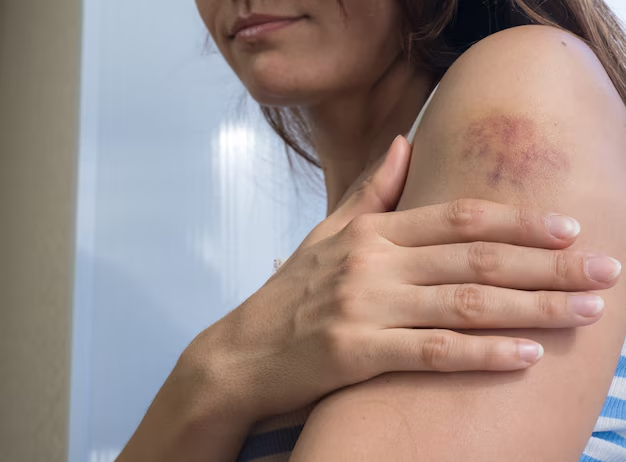Uncovering the Triggers: What Influences Psoriasis Flare-Ups?
Psoriasis, a chronic autoimmune condition, affects millions of people worldwide, leading to uncomfortable and often painful skin symptoms. While the underlying causes can be complex, understanding what affects psoriasis is crucial for managing the disease effectively. Let's dive into the different factors that can trigger flare-ups, providing you with insights and tips to help you navigate your journey with psoriasis.
Genetics: The Roots of Psoriasis
It's crucial to recognize that genetics play a significant role in psoriasis. If you have a family history of the condition, you might be more prone to developing it. Scientists have identified several genes linked to psoriasis, indicating that it is an inherited disorder.
Understanding Genetic Predisposition
- PSORS1 Gene: The strongest genetic factor associated with psoriasis. Variations in this gene can increase susceptibility to the condition.
- Immune System Genes: Mutations or variations in genes that regulate the immune system can lead to psoriasis by mistakenly attacking healthy skin cells.
While genetics are beyond our control, knowing your family history can help you stay informed and proactive about potential psoriasis risks.
Environmental Factors: A Triggering Influence
Living with psoriasis means being aware of your environment. Various environmental factors can exacerbate symptoms or initiate flare-ups. Let’s explore these in more detail:
Weather Conditions
- Cold, Dry Weather: Often worsens psoriasis symptoms, as low humidity levels can dry out the skin, making plaques more noticeable.
- Sunshine and UV Exposure: Moderate sun exposure may improve symptoms, but overexposure can lead to burns and worsen them.
Stress: The Silent Aggravator
Stress is a universal trigger for many health issues, including psoriasis. High-stress levels can significantly worsen psoriasis due to the body's inflammatory response.
- Stress-Management Techniques: Practices such as yoga, meditation, and deep-breathing exercises can help keep stress at bay, potentially reducing psoriasis flare-ups.
Lifestyle Choices: A Significant Impact
Your daily habits and lifestyle choices also critically impact psoriasis management. Small adjustments can lead to significant improvements:
Diet: Fueling Your Body
While there is no one-size-fits-all diet for psoriasis, certain foods may trigger or alleviate symptoms.
- Anti-inflammatory Foods: Such as fruits, vegetables, and omega-3 fatty acids found in fish, can help reduce inflammation.
- Foods to Avoid: Red meat, dairy, and processed foods may trigger inflammation, potentially worsening psoriasis.
Smoking and Alcohol
- Smoking: A bad habit that can double the risk of psoriasis due to its effect on the immune system.
- Alcohol Consumption: Excessive drinking is another known trigger. It can alter the immune response and exacerbate symptoms.
Medical Factors: Medication and Psoriasis
Medications can also impact psoriasis, with some potentially triggering or worsening symptoms.
Common Medications to Watch
- Beta-blockers: Used for high blood pressure, may exacerbate psoriasis.
- Lithium: Often prescribed for mental health conditions, it can trigger or worsen psoriasis in some individuals.
- Antimalarials: Such as hydroxychloroquine, might induce psoriasis flare-ups in predisposed patients.
Infections: Catalysts for Flare-Ups
Infections, particularly streptococcal infections, can trigger psoriasis, specifically guttate psoriasis, a type characterized by small, droplet-shaped sores.
Tips to Mitigate Risks
- Regular Health Check-ups: Crucial for early detection and management of infections.
- Staying Up-to-date: Ensure vaccinations are current to prevent infections that could trigger psoriasis.
Hormonal Changes: The Invisible Trigger
Hormonal fluctuations during puberty, pregnancy, or menopause can also affect psoriasis. These changes can either improve or worsen symptoms due to shifts in the body's hormone balance.
Managing Hormonal Influences
- Regular Monitoring: Keeping a journal can help track any correlation between hormonal changes and psoriasis symptoms, providing valuable insights for management.
Empowering Yourself with Knowledge
Understanding what affects psoriasis is half the battle won. By identifying and managing triggers like stress, diet, and lifestyle choices, you can better control flare-ups. Remember, while psoriasis is a chronic condition with no cure, effective management can significantly improve the quality of life.
Here's a practical, emoji-enhanced summary to empower your journey:
- 🧬 Know Your Genetics: Alertness to family history can help predict predispositions.
- 🌦️ Mind the Weather: Keep skin hydrated during dry, cold seasons.
- 🧘♀️ Stress Less: Incorporate stress-reducing techniques daily.
- 🥗 Eat Wisely: Focus on anti-inflammatory foods and avoid known triggers.
- 🚬 Quit Smoking, 🍷 Limit Alcohol: Both habits can worsen psoriasis symptoms.
- 💊 Monitor Medications: Stay informed about medications that may trigger symptoms.
- 🔍 Stay Infection-Free: Regular check-ups and vaccinations are key.
- 🗓️ Track Hormonal Changes: Observing patterns can guide better disease management.
Equipped with this knowledge, you can better navigate psoriasis and take control of the factors impacting your condition.

